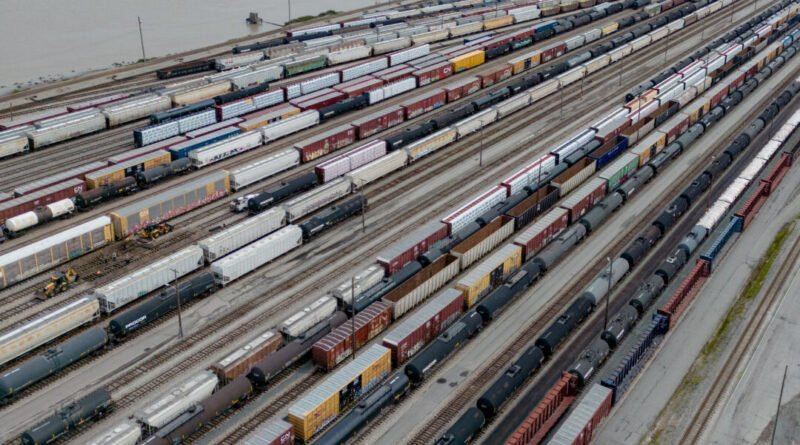The potential effects of the rail stoppage on food prices and availability
Canada is facing a major rail strike as the country’s two main railway companies fail to reach an agreement with a union. Food experts warn that this could lead to empty grocery shelves and higher food prices for Canadians.
Sylvain Charlebois, a professor at Dalhousie University, explained, “As soon as you go from rail to wheels, you’re likely doubling your transportation costs. And at some point, someone is going to have to pay for that, and that’s likely going to be the consumer.”
The Canadian National Railway (CN) and Canadian Pacific Kansas City (CPKC) are at a deadlock with the Teamsters Canada Rail Conference, representing 9,300 employees. This has led to 6,000 CN workers and 3,300 CPKC workers being locked out, bringing trains across Canada to a halt on Aug. 22.
According to the Teamsters Union’s press release on Aug. 22, the railway companies have rejected multiple offers and are accused of compromising rail safety and tearing families apart for profit. CN stated that the union did not respond to its final offer to avoid a labor disruption, while CPKC claimed the union’s demands would hinder their customer service.
With more than half of Canada’s exports relying on rail transportation, valued at over $1 billion daily, the country’s food supply chain is at risk. Charlebois warned of potential catastrophic effects if the strike continues beyond a week.
Charlebois reassured that most grocery stores had stocked up for the strike, but if it extends beyond a week, consumers can expect disruptions and price increases. The Grain Growers of Canada estimate a daily loss of $43 million for the industry due to the stoppage.
Grain farmers are particularly affected, facing lost sales and degraded grain quality without the railway to transport their products. This could result in higher prices and shortages for consumers.
Trevor Heaver, a professor emeritus at the University of British Columbia, highlighted the challenges of switching from rail to trucking for food transportation, especially with a shortage of truck drivers.
Heaver added that the strike’s ripple effects would impact various industries beyond rail, potentially leading to closures of mines, lumber mills, and food plants.





